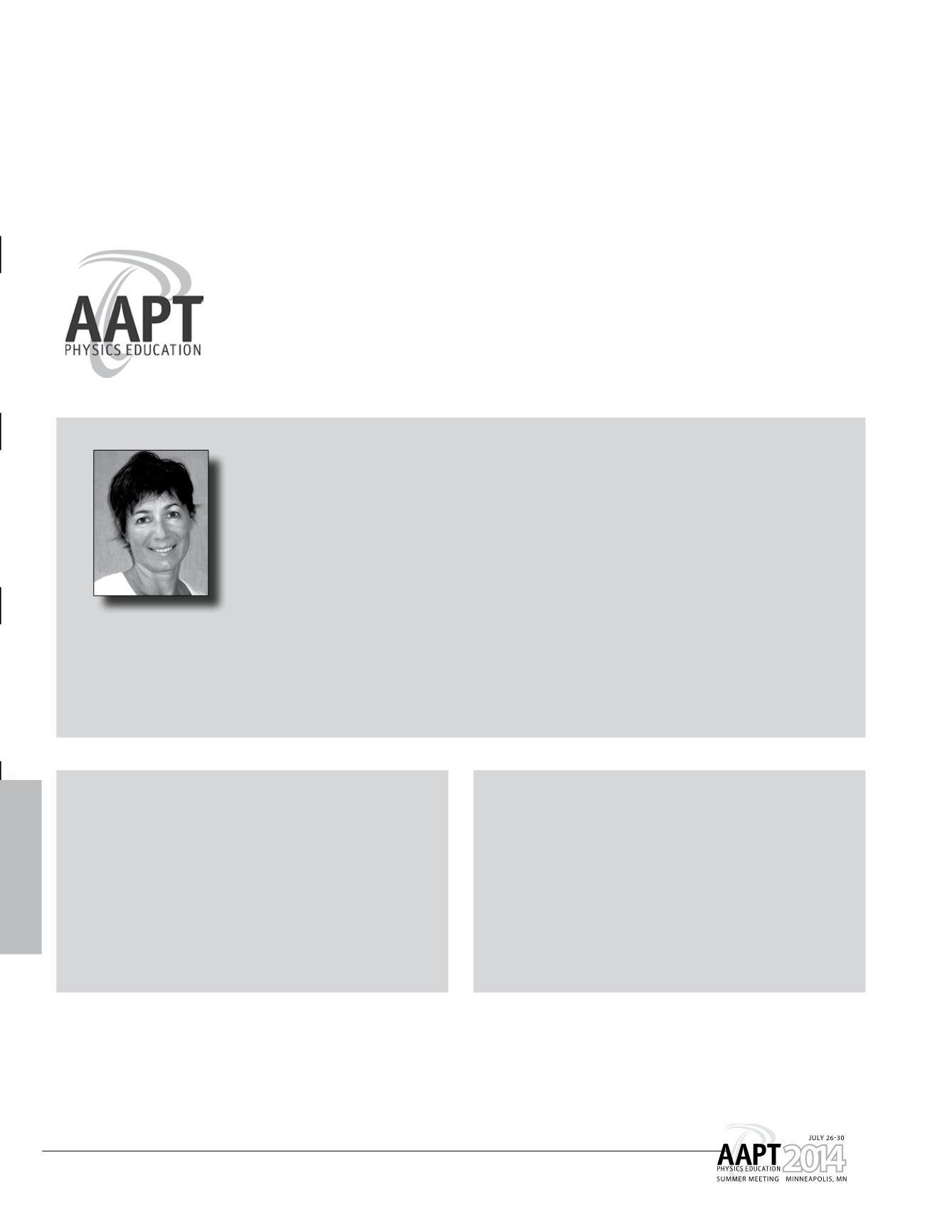
134
Wednesday morning
FK05:
10-10:10 a.m. Women’s Ways of Becoming Physicists:
Identity and Trajectory
Contributed – Sissi L. Li, California State University, Fullerton, 800 N. State
College Blvd., Fullerton, CA 92831-3547;
Michael E. Loverude, California State University Fullerton
Physics is the least representative of the hard sciences, with only 21%
of bachelor’s degrees in the United States during 2008-2010 awarded to
females and 13% to non-white U.S. citizens (AIP, 2011). Our preliminary
work suggests that many students from underrepresented groups have
little experience with the cultural norms and expectations of disciplinary
communities and can face significant challenges in integrating. These
challenges are often sensitive and not obvious to faculty and mentors.
We present case studies constructed from interviews with two female stu-
dents who have recently completed their BS in physics. We describe their
experiences in terms of advancing along a trajectory towards becoming
physicists. Our results suggest that supporting students through their
major touches not only upon academic and professional expectations,
but also social interactions within and beyond the school setting.
Ceremonial Session: 2014 AAPT Robert A. Millikan Medal
Presented to Eugenia Etkina
Location: Northrop Auditorium
Date: Wednesday, July 30
Time: 10:30–11:30 a.m.
Presider: Gay Stewart
Eugenia Etkina
Students of Physics: Listeners, observers, or collaborative participants?
Eugenia Etkina, Rutgers University, 10 Seminary Place, New Brunswick, NJ 08901
Scientists and especially physicists have their own, unique ways of developing new knowledge,
solving new problems, and communicating about what they do. These form a set of cultural norms
and practices that we call “physics.” Can students become enculturated into physics in a one-year
introductory course, or does “doing physics” remain the exclusive purview of professionals who
have acquired their skills through years of training? Development of the Next Generation Science
Standards, revisions to AP courses, and a new MCAT suggest that these aspects of physics (and
other sciences) are as valuable as the final product of scientific labor—concepts and mathematical
representations—that traditionally have been the sole focus of science courses. Science practices
are the central elements of all these innovations. In my talk I will describe curricular approaches
that make these practices a centerpiece of learning physics without losing conceptual and math-
ematical focus. Ways to assess these complex practices will also be discussed.
Session TOP07: PERTG Town Hall
Location: Tate Lab 166
Sponsor: AAPT PERTG
Date: Wednesday, July 30
Time: 11:30 a.m.–12:30 p.m.
Presider: MacKenzie Stetzer
This is a meeting for members of the Physics Education Research Topical
Group.
Session TOP08: Web Resources for
Teaching Astronomy
Location: STSS 114
Sponsor: Committee on Space Science and Astronomy
Date: Wednesday, July 30
Time: 11:30 a.m.–1 p.m.
Presider: Kevin Lee
This topical discussion will look at several new astronomy offerings on
the Internet. Participants (who are encouraged to bring laptops and
tablets) will then brainstorm in groups on how to best make use of
these capabilities.


